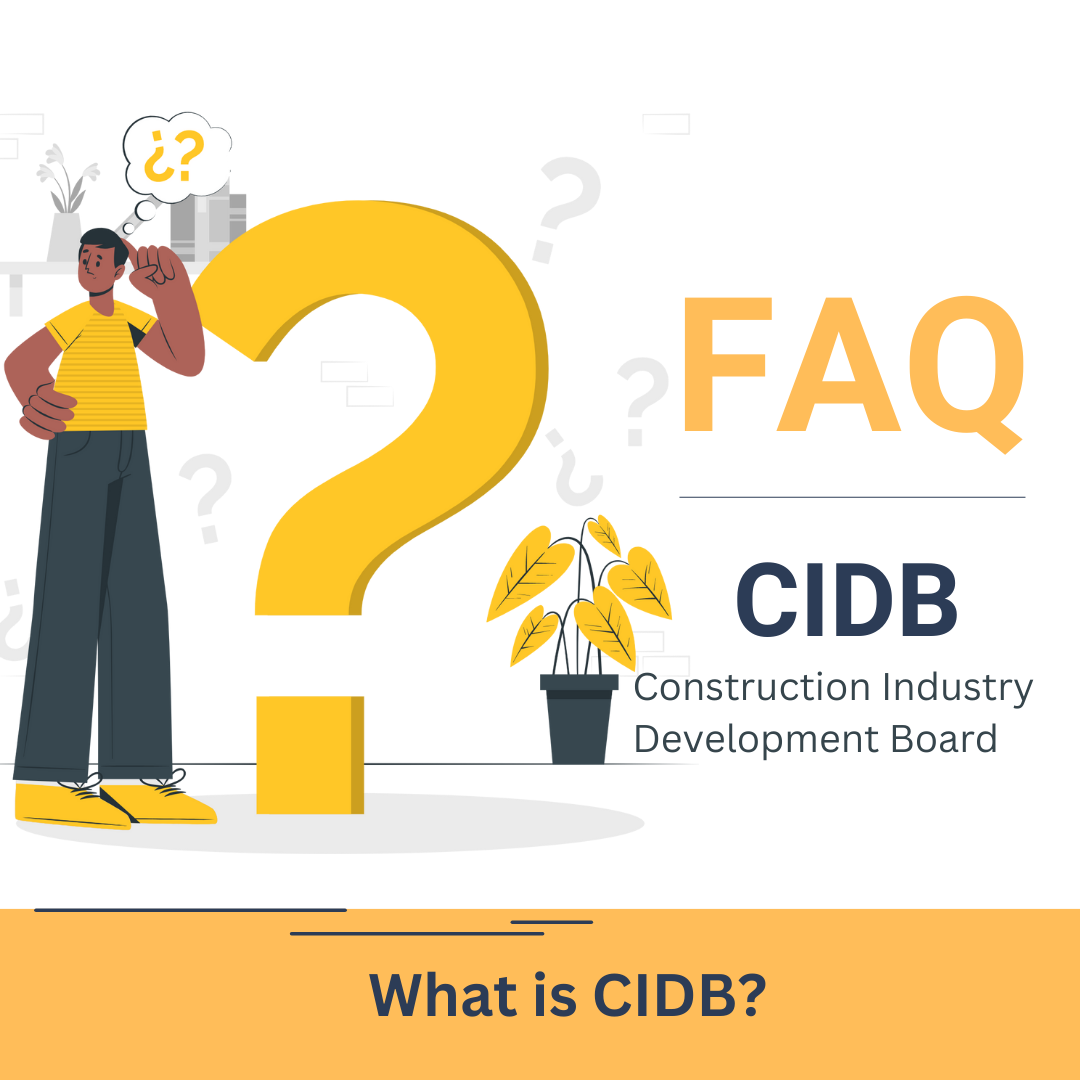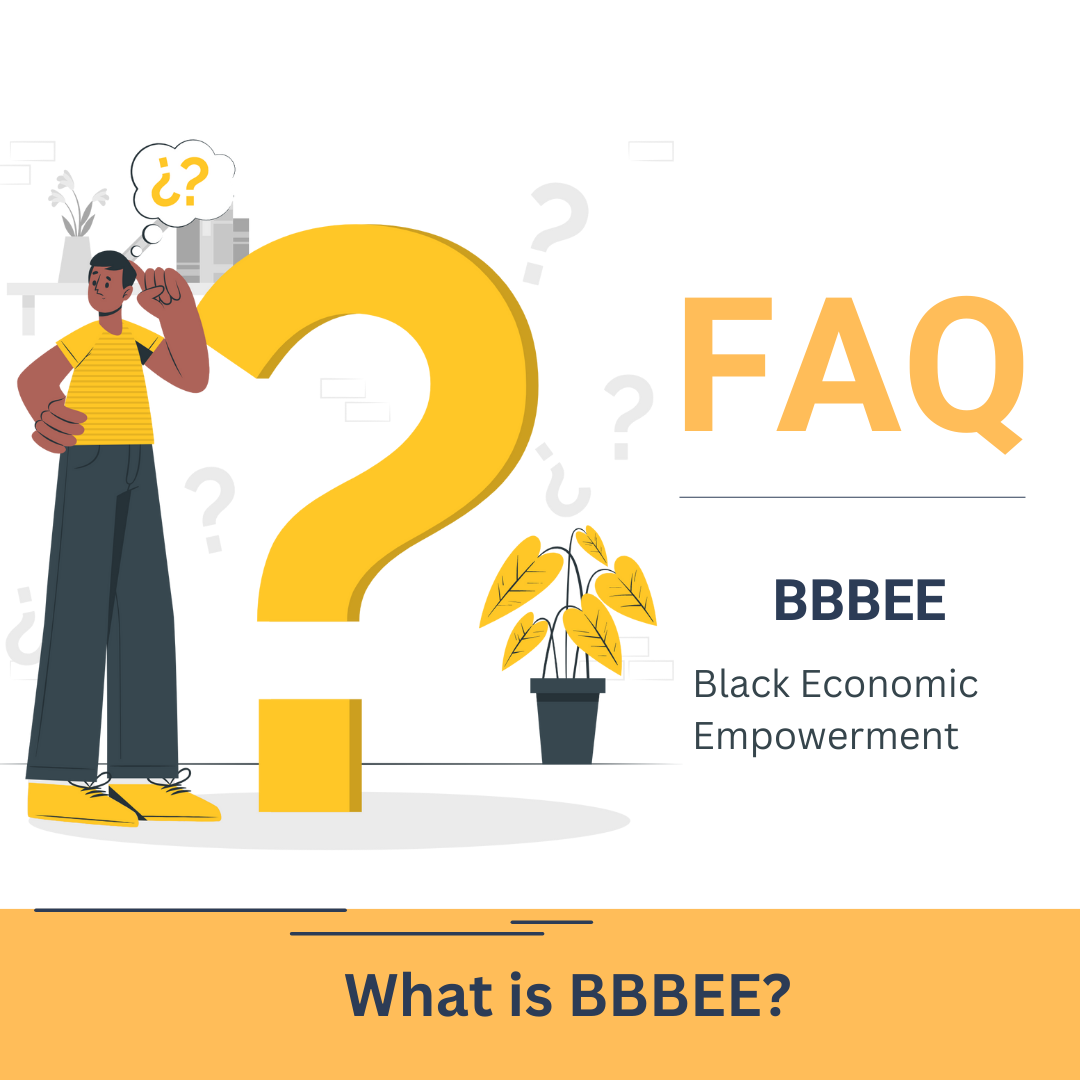
Navigating the Construction Industry: A Guide to CIDB for SMME Contractors
The construction industry in South Africa is a thriving sector with boundless opportunities for Small, Medium, and Micro-sized Enterprises (SMMEs). However, it's also a highly regulated field, and one organization that plays a significant role in this sector is the Construction Industry Development Board, or CIDB. In this blog post, we will delve into what CIDB is, its importance for SMME contractors, and how it can be a valuable resource to help you succeed in the construction industry.
Understanding the CIDB
The Construction Industry Development Board (CIDB) is a statutory body established by the South African government to regulate and promote the construction industry. Its primary mission is to foster growth, competitiveness, and sustainability within the sector while ensuring compliance with industry standards and best practices. The CIDB was established under the Construction Industry Development Regulations of 2000 and is a crucial entity for anyone involved in the construction industry.
CIDB Categories and Grading
One of the core functions of the CIDB is the categorization and grading of contractors. CIDB grading is a system that classifies contractors based on their financial capacity, experience, and capability to undertake construction projects. This grading system is of paramount importance for SMME contractors, as it affects their eligibility to bid for and participate in various construction projects.
CIDB grading categories range from 1 to 9, with Category 1 representing the lowest grade and Category 9 the highest. Here's what SMME contractors need to know about CIDB grading:
1. Eligibility for Projects: Many public and private sector construction projects require contractors to have a specific CIDB grading level to bid for the project. SMMEs often start at lower grades and work their way up as they gain experience and capacity.
2. Competitive Advantage: Achieving a higher CIDB grading demonstrates your capability and experience to potential clients and partners. It can be a competitive advantage when seeking contracts and collaborations.
3. Access to Tenders: To access government tenders and some private sector projects, you must be registered with the CIDB and have the appropriate grading for the project's value and complexity.
CIDB Registration Process
For SMME contractors, registering with the CIDB is a vital step towards participating in construction projects. Here's an overview of the registration process:
1. Documentation: Gather the necessary documentation, which may include proof of experience, financial statements, and tax clearance certificates.
2. Online Application**: Visit the CIDB's official website and complete the online registration form. Be prepared to upload your documentation.
3. Evaluation: The CIDB will evaluate your application based on your experience, financial capacity, and other criteria. You will receive a grading based on this assessment.
4. Registration Certificate: If your application is successful, you will receive a CIDB registration certificate indicating your grading category.
CIDB Benefits for SMME Contractors
Now that we've covered the basics, let's explore why SMME contractors should consider CIDB registration:
1. Access to Projects: CIDB registration opens doors to a broader range of construction projects. Many public and private sector clients prefer working with registered and graded contractors, which can lead to more opportunities for your SMME.
2. Credibility: Being registered and graded by the CIDB enhances your credibility in the industry. It shows potential clients and partners that you meet industry standards and have the necessary expertise to complete projects successfully.
3. Networking Opportunities: CIDB events, workshops, and seminars provide excellent networking opportunities. You can connect with other contractors, industry experts, and potential clients, leading to valuable collaborations and partnerships.
4. Skills Development: The CIDB offers training programs and resources to help contractors improve their skills and knowledge. These programs can enhance your ability to take on more complex projects.
5. Government Tenders: If you aspire to work on government projects, CIDB registration is often a prerequisite. It can make your SMME eligible for government tenders and contracts, which can be lucrative opportunities.
Staying Compliant with CIDB
After CIDB registration, it's essential to maintain compliance with the board's requirements. Here's how:
1. Annual Renewal: Your CIDB registration and grading must be renewed annually. Ensure that you meet all the renewal requirements to avoid lapses in your eligibility for projects.
2. Financial Management: Maintain sound financial practices and keep accurate financial records. This is crucial for maintaining your CIDB grading, as financial capacity is a significant factor in grading assessments.
3. Experience and Capacity: Continuously work on expanding your experience and capacity in the construction industry. Gaining more substantial projects and improving your skills can lead to higher CIDB grading.
Conclusion
For SMME contractors looking to thrive in South Africa's construction industry, understanding the Construction Industry Development Board (CIDB) is essential. CIDB registration and grading open doors to more opportunities, enhance your credibility, and provide access to valuable resources and training programs.
By registering with the CIDB and maintaining compliance with its requirements, your SMME can position itself for growth and success in the highly competitive construction sector. Embrace the opportunities that CIDB offers, and let it be your partner on your journey to becoming a thriving contractor in South Africa.





